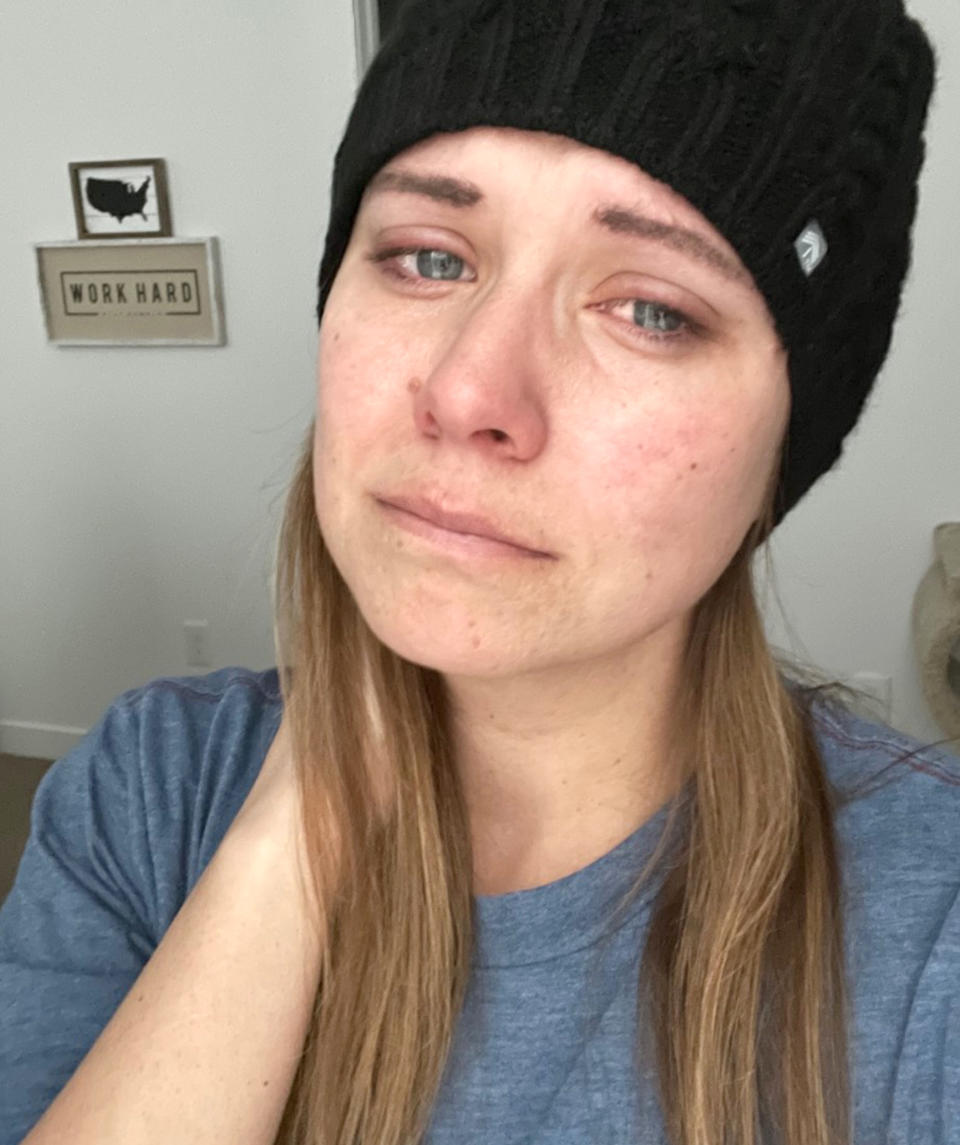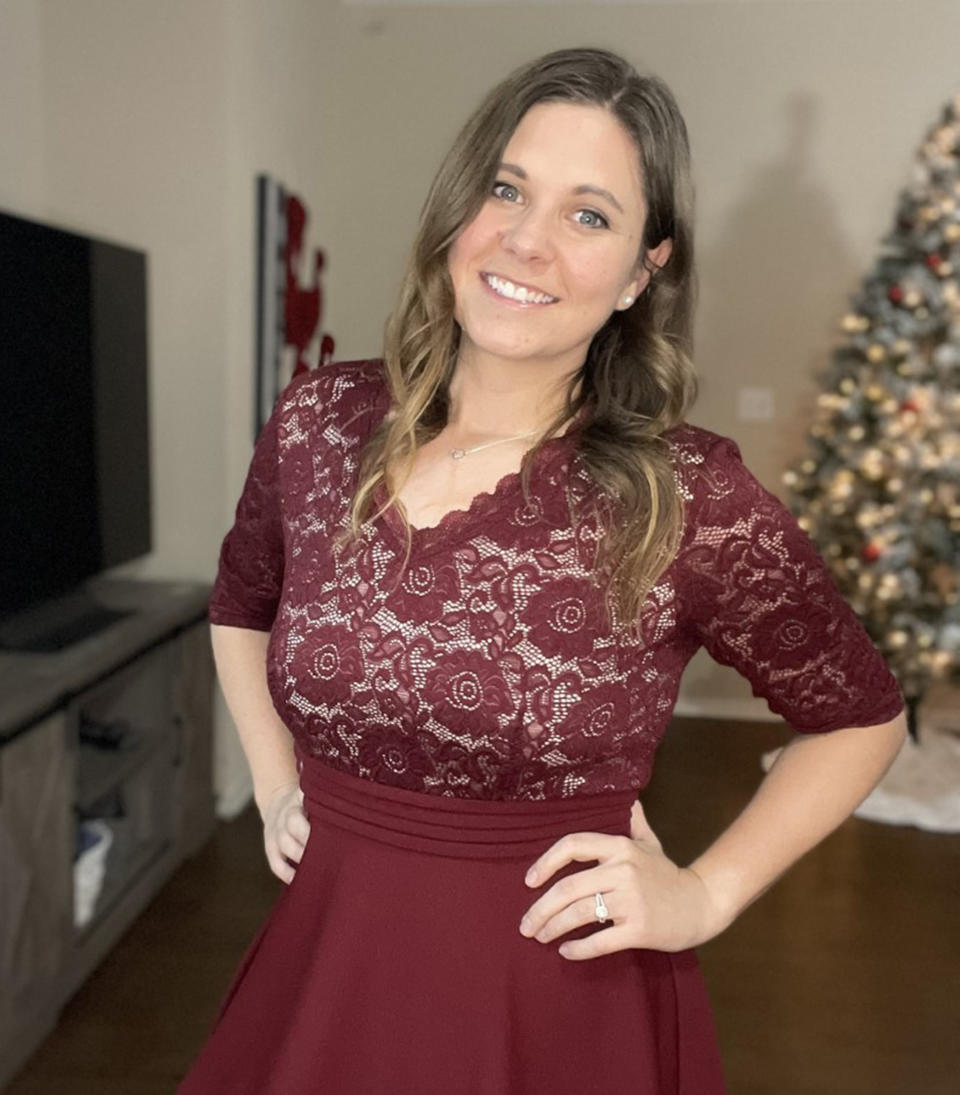Doctors told woman, 29, she was too young for cancer. Then came the 'terrifying diagnosis'
Katie Coleman was diagnosed with a rare type of kidney cancer in 2020 when she was 29. She had spent a frustrating year-and-a-half going to doctors to figure out what was wrong before finally getting an answer. Coleman, a software developer who recently started a new job in Austin, Texas, decided to be candid about her diagnosis when she interviewed for the position. She shared her story with TODAY.
Before this happened, I hadn’t had any health issues. I didn’t even have a primary care doctor, which I look back on and regret.
I knew something was wrong with my body — I just knew it deep down. I had sustained high blood pressure and a rapid heart rate, so I went to eight different doctors, did all kinds of tests and everybody just kept telling me I had anxiety. Two doctors told me I was too young for cancer when I asked. It made me feel like a hypochondriac.
I’ve had anxiety throughout my life, but this was different and I tried to communicate that, but I kept being put on anti-anxiety medications.
When I couldn’t get anybody to take me seriously, I started to intentionally lose weight to try to see if that could make my health better and solve the problem. I lost 50 pounds by walking two to 10 miles a day and eating healthy. When I lost that weight, I started to feel a hard mass in my upper right abdomen.
It wasn’t a lump. The best way that I can describe it is it felt like I had six-pack abs on that side, but I don’t have a six-pack in any way, shape or form. I wasn’t getting pain from it, I could just feel it. So I went to an urgent care and the nurse practitioner assured me that it was a perfectly valid reason to go to the ER.
It was December 2020, right in the peak of COVID-19, so I was super nervous to go to the ER, but I went. They did an ultrasound and a CT scan and saw an almost 5-inch mass on my kidney and several tumors in my liver.
When a doctor came in to deliver the news on New Year’s Eve, my husband instantly started crying. We had just gotten married in October. We were newlyweds. Nobody expects that kind of diagnosis to come two months after you get married.

But even though it was a terrifying diagnosis, I almost felt a sense of relief because for once, I had somebody sitting across from me who believed me and there was a reason for why I had been feeling terrible.
My official diagnosis is a rare type of renal cell carcinoma, called a metastatic oncocytoma. Oncocytomas are never supposed to spread, but mine went to my liver and that’s what turned it into stage 4 kidney cancer.
When I first got diagnosed, surgery wasn’t an option. But the tumor seemed to be slow growing and six months into my treatment, the National Cancer Institute decided to take a chance on me and operate.
In June 2021, doctors removed my right kidney and did several wedge resections of my liver — cut out several pieces — and then also burned a few tumors in my liver. I had another ablation in November.

I’ve just been on active surveillance ever since. I still have tumors left in my liver, but they’ve been stable for quite a while. I have scans at the end of June.
I’m a software developer, so it drove me absolutely insane how difficult it is to navigate the system as a patient. I created my own app to keep track of my doctors, notes, appointments and vitals in one place.
I wasn’t looking for a new job, but I decided I would consider one with a company in the digital health space. That’s precisely what happened — a recruiter reached out.
I had to consider if I was going to disclose my diagnosis or not, and I ultimately disclosed it right out of the gate. I told the recruiter that I had cancer and I led with it going into the process. I was only going to make a shift to a new employer if I knew that new employer was supportive.

I was in a very unique situation because I didn’t need a job. Several people told me not to disclose my diagnosis — that I’d be discriminated against, which is a very valid concern. But it was a personal decision and a calculated risk. My new employer has been absolutely incredible.
My cancer is so rare that there’s not really prognosis. Nobody knows what to expect. I don’t blame the first doctors for their comments before my diagnosis — to them, I just looked like an anxious patient. They were going off of their training and the box that I fell into at the time.
Today, I’m feeling great. I actually feel the best I’ve felt in my entire life, which is really weird to say with stage 4 cancer. I’m very appreciative for however long a period of time I get to feel this way.
This interview was edited and condensed for clarity.

